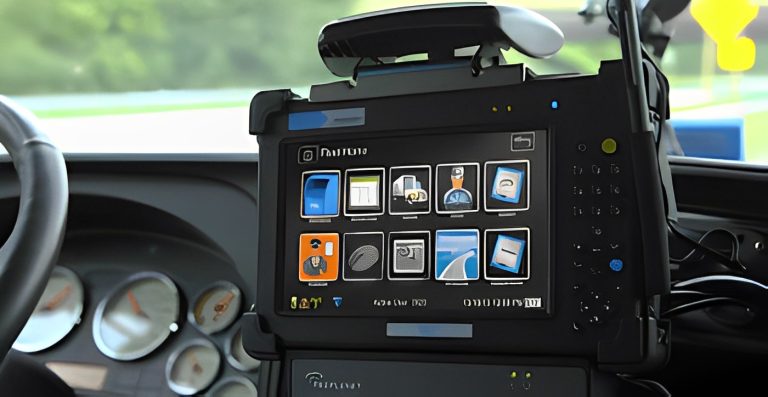Types of GPS Fleet Tracking Systems: A Simple Guide
GPS fleet tracking systems have become an essential tool for businesses of all sizes that rely on a fleet of vehicles for their day-to-day operations. These systems use GPS technology to track the location and movement of vehicles in real-time, providing fleet managers with valuable insights into the performance and efficiency of their fleet.
There are two main types of GPS fleet tracking systems: hardwired and wireless.
Hardwired GPS Tracking Systems
Hardwired GPS tracking systems are permanently installed in fleet vehicles and are typically more robust and reliable than their wireless counterparts. These systems are hardwired into the vehicle’s power source and require professional installation. Once installed, they offer a high level of accuracy and reliability.
Hardwired GPS tracking systems can provide a wide range of data, including vehicle location, speed, idling time, and more. This data can be used to optimize routes, reduce fuel consumption, and monitor driver behavior. Additionally, hardwired systems can provide a range of alerts, including maintenance reminders, unauthorized use alerts, and more.
One of the primary benefits of hardwired GPS tracking systems is their ability to provide real-time data on vehicle location and movement. This allows fleet managers to monitor their fleet in real-time and make informed decisions about route optimization, vehicle utilization, and more.
Wireless GPS Tracking Systems
Wireless GPS tracking systems are portable and easy to install, typically using a plug-and-play device that can be easily attached to the OBD-II port in a vehicle. They are more affordable upfront and don’t require professional installation, but can be less reliable and more prone to signal loss in areas with poor cellular coverage.
Wireless GPS tracking systems are ideal for small businesses or those with a smaller fleet, as they offer a cost-effective solution for tracking vehicle location and movement. They can provide a range of data, including vehicle location, speed, and more, and can also provide alerts for maintenance reminders, unauthorized use, and more.
One of the primary benefits of wireless GPS tracking systems is their ease of installation and portability. They can be easily moved from one vehicle to another, making them ideal for businesses with a rotating fleet of vehicles.
Hybrid GPS Tracking Systems
Hybrid GPS tracking systems combine the best of both worlds, offering the reliability and accuracy of hardwired systems with the ease of installation and portability of wireless systems. These systems typically use a hardwired device for tracking and data collection, but also include a wireless device for backup or additional data collection.
Hybrid GPS tracking systems are ideal for businesses that need the reliability and accuracy of hardwired systems but also want the flexibility and ease of use of wireless systems.
Conclusion
GPS fleet tracking systems are an essential tool for businesses that rely on a fleet of vehicles for their day-to-day operations. Hardwired GPS tracking systems offer unparalleled reliability and accuracy, while wireless systems provide a cost-effective and easy-to-install solution for smaller fleets. Hybrid GPS tracking systems combine the best of both worlds, offering a reliable and flexible solution for businesses of all sizes.
When choosing a GPS fleet tracking system, it’s important to consider the needs of your business and the specific features offered by different systems. Whether you choose a hardwired, wireless, or hybrid system, GPS fleet tracking can provide valuable insights into the performance and efficiency of your fleet, helping you to optimize routes, reduce fuel consumption, and improve overall productivity.







